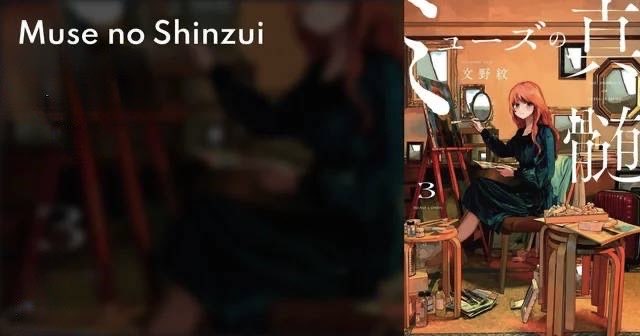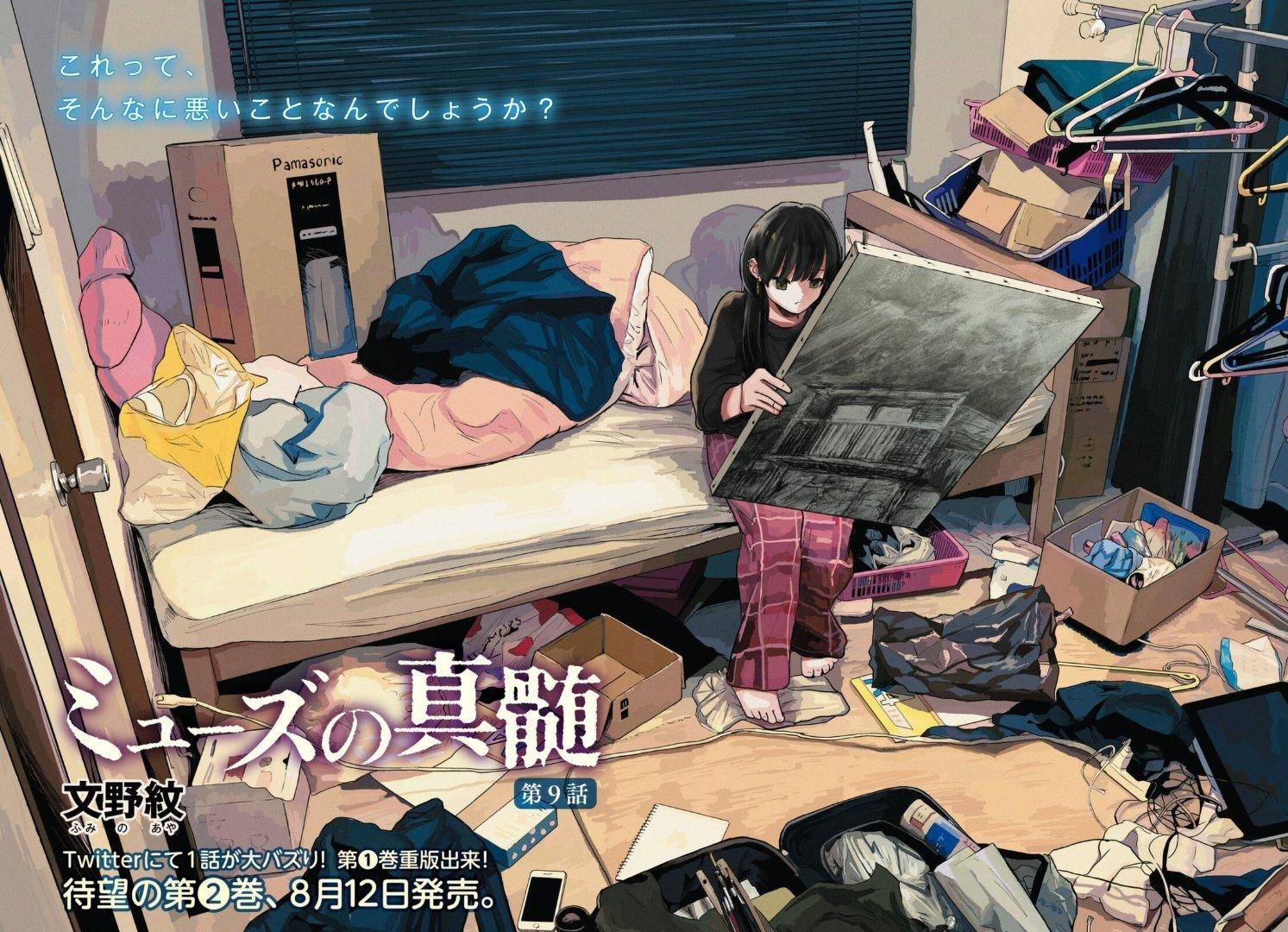Some stories hit you with drama. Others? They sneak up on you quietly, like a whisper you can’t unhear. Muse no Shinzui (The Essence of Being a Muse) is that kind of story. Streaming now on ComicK, this poignant coming-of-age manga captures the loneliness of following someone else’s dream and the gut-wrenching liberation of finally chasing your own.
Aya Fumino delivers a deeply personal tale of one woman’s emotional breakdown and artistic awakening, where the first brushstroke of change begins with heartbreak.
Miyuu Seno: The Girl Who Forgot Herself
When we meet Miyuu, she’s a ghost of her younger self. Once a passionate artist, now just another office worker trapped in an apartment that feels more like a museum curated by her mother. The makeup isn’t hers. The clothes aren’t hers. Even the future she’s “working toward” isn’t hers.
Then comes the line. The moment. Her so-called perfect match, an aloof accountant named Kairi Nabeshima, tells her he likes her because she’s a “pale, pitiful imitation.” Of what? Of whom? It doesn’t matter. What matters is that something inside Miyuu snaps and it’s beautiful.

Running Toward the Canvas
Miyuu leaves with nothing but a blank canvas under her arm literally and symbolically. What follows is a raw, unfiltered attempt to rebuild herself from the brushstrokes up. She fumbles. She bleeds. She gets rained on. But for the first time in five years, she’s finally trying to live as Miyuu, not as someone else’s daughter, girlfriend, or employee.
Aya Fumino’s visual storytelling shines here. There are moments where the artwork stutters, lines jitter, and perspectives tilt reflecting Miyuu’s emotional instability in ways words can’t. During an especially raw scene with her mother, the paneling feels claustrophobic. Later, while sketching alone, the soft tremors of her pencil echo through the page. It’s not just good manga it’s good art.
The Anatomy of a False Life
Muse no Shinzui doesn’t just tell the story of one woman’s artistic revival. It dissects the quiet rot of conforming to someone else’s script. We’re used to protagonists who rebel loudly. Miyuu rebels by simply walking out, barefoot and bleeding, without a speech or a plan. It’s subtle. It hurts. It’s real.
More importantly, it’s not painted as a triumph. She’s scared. She doubts herself. But she keeps moving. That’s the power of this manga: growth without glamor.

Kairi Nabeshima: The Antagonist Who Thinks He’s the Victim
If you expected Kairi to become Miyuu’s romantic savior, think again. He gets a few pages of sympathy, yes, as we learn about his own failed dreams of being a model. But instead of empathy, he projects. He doesn’t see her. He sees himself.
And Miyuu? She sees through him. When he awkwardly tries to ask her out later, she doesn’t entertain it. There’s no last-minute redemption arc here. Just an honest refusal—and a quiet, confident step away from the past.
A Visual Language of Vulnerability
Fumino’s art might fit the traditional shōjo style at a glance, but the subtleties are what elevate it. The emotional cadence of each scene is mirrored in line thickness, panel pacing, and perspective shifts. When Miyuu breaks down while sketching, it doesn’t feel like a trope. It feels like therapy gone wrong. Like she’s purging years of silence with every jagged pencil mark.
That technique allowing form to mirror emotion is what sets Muse no Shinzui apart. It makes the book feel less like a story you read and more like one you feel.
Who Is This For? (And Why It Matters)
This manga is rated T for Teen (13+), and that’s appropriate. There’s no nudity, though there’s emotional nudity everywhere. The toughest scenes aren’t graphic; they’re honest. You see a woman cut by expectations, trying to paint her way out. Teens will see parts of themselves here especially those quietly drowning under parental pressure or societal standards.
More than a coming-of-age story, Muse no Shinzui is a coming-back-to-yourself story.
A Canvas of Her Own
By the time you turn the final page, you may not remember every line of dialogue but you will remember how it made you feel. Muse no Shinzui isn’t flashy. It doesn’t ask for your attention; it earns it. Through Miyuu’s journey, Aya Fumino captures something rare: the ache of being unseen, and the quiet thrill of finally seeing yourself.
Available now on ComicK, this is one manga that doesn’t just tell a story. It gives you permission to start your own.
